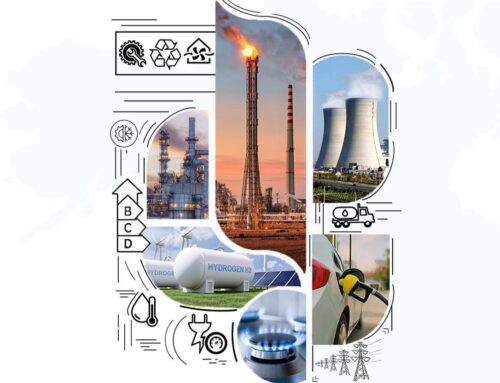Turning sunlight into fuel: QD-SOL’s vision for a hydrogen-powered world
October 25, 2025
The global race toward cleaner energy often meets the limits of physics and cost, one Israeli startup believes it has found a shortcut — by letting nature lead the way. QD-SOL, a young company based in Ness Ziona, has developed a technology that turns sunlight and water directly into hydrogen fuel — without electricity, emissions, or heavy infrastructure.
At the helm is CEO Stella Weinstein, a scientist-turned-entrepreneur whose vision is both elegant and radical: “We only use water and sun to produce hydrogen, to create fuel for the future,” she says in a recent episode of What’s Next in Israel Tech. “Think about trees and flowers — they use sunlight and water to make energy for themselves. That’s exactly what we’re doing.”
At the heart of QD-SOL’s innovation lies photocatalytic technology, a process that mimics photosynthesis. Unlike traditional solar panels that convert sunlight into electricity, QD-SOL’s panels use nanotechnology to split water molecules into hydrogen and oxygen.
The result is pure, green hydrogen, produced entirely off-grid. “It looks like a solar panel,” Weinstein explains, “but it’s something entirely different. Fifteen small panels are enough to power your car for a year.”
That statement sounds deceptively simple — but behind it is years of chemistry, materials science, and engineering. QD-SOL has done what researchers around the world have long struggled to achieve: transforming photocatalytic hydrogen generation from a lab experiment into a practical, market-ready system.
In a demonstration video, bubbles rise gently from the company’s device. Weinstein points to them with a smile: “You see these bubbles? That’s the hydrogen.” It’s a moment that captures the essence of their achievement — energy literally born from sunlight and water.
Founded in late 2021, QD-SOL has advanced at remarkable speed. Within four years, it has installed a commercial demonstration system on the roof of its Ness Ziona headquarters, proving its system works outside the lab.
“We are already in the process of commercial scaling,” Weinstein says. “The technology is autonomous, modular, and can be placed anywhere — cities, villages, or off-grid environments.”
That flexibility opens doors to wide-ranging uses — from fueling vehicles and powering industrial operations to bringing clean energy to remote regions without access to electrical grids.
Hydrogen, often called “the fuel of the future,” could help decarbonize industries such as aviation and shipping. But most of today’s hydrogen is still derived from natural gas, emitting large amounts of carbon dioxide. QD-SOL’s method sidesteps that entirely — producing hydrogen with no fossil fuels and no power grid.
The company’s vision has caught attention far beyond the energy sector. During her interview, Weinstein confirmed that actor and investor Ashton Kutcher is among QD-SOL’s backers.
“Yes, Ashton Kutcher is one of our investors,” she says, laughing. “Ashton, I’m still waiting to come to Los Angeles to put these panels in your backyard!”
It’s a playful remark, but it reflects a broader trend: the intersection of technology, climate action, and pop culture. Clean-energy innovation, once confined to industrial labs, is now part of mainstream conversation — and investment.
QD-SOL’s story exemplifies a familiar Israeli pattern: bold ideas pursued with urgency. From cybersecurity to agrotech — and now, to green hydrogen — Israeli startups continue to shape global industries through a mix of creativity, pragmatism, and speed.
Weinstein’s team embodies that ethos. Their photocatalytic panels represent more than an energy solution — they symbolize independence, sustainability, and possibility. “We’re creating the fuel for the future of fuel,” she says.
QD-SOL was featured on What’s Next in Israel Tech, a global platform highlighting Israel’s most promising startups in short, high-impact stories watched by millions. The segment stands out not just for its innovation, but for its optimism — a reminder that sometimes, the simplest answers are those already written in nature.
Search
RECENT PRESS RELEASES
Related Post


